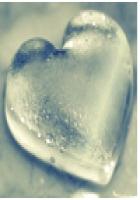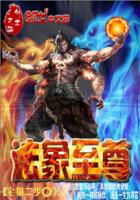There's a good deal of romance been written about the "bad man,"and there's about the same amount of nonsense. The bad man is justa plain murderer, neither more nor less. He never does get into a real, good, plain, stand-up gunfight if he can possibly help it. His killin's are done from behind a door, or when he's got his man dead to rights. There's Sam Cook. You've all heard of him. He had nerve, of course, and when he was backed into a corner he made good; he was sure sudden death with a gun. But when he went for a man deliberate, he didn't take no special chances. For a while he was marshal at Willets. Pretty soon it was noted that there was a heap of cases of resisting arrest, where Sam as marshal had to shoot, and that those cases almost always happened to be his personal enemies. Of course, that might be all right, but it looked suspicious. Then one day he killed poor old Max Schmidt out behind his own saloon. Called him out and shot him in the stomach. Said Max resisted arrest on a warrant for keepin' open out of hours! That was a sweet warrant to take out in Willets, anyway! Mrs. Schmidt always claimed that she say that deal played, and that, while they were talkin' perfectly peacable, Cook let drive from the hip at about two yards' range. Anyway, we decided we needed another marshal.
Nothin' else was ever done, for the Vigilantes hadn't been formed, and your individual and decent citizen doesn't care to be marked by a gun of that stripe. Leastwise, unless he wants to go in for bad-man methods and do a little ambusheein' on his own account.
The point is, that these yere bad men are a low-down, miserable proposition, and plain, cold-blood murderers, willin' to wait for a sure thing, and without no compunctions whatsoever. The bad man takes you unawares, when you're sleepin', or talkin', or drinkin', or lookin' to see what for a day it's goin' to be, anyway. He don't give you no show, and sooner or later he's goin' to get you in the safest and easiest way for himself.
There ain't no romance about that.
And, until you've seen a few men called out of their shacks for a friendly conversation, and shot when they happen to look away; or asked for a drink of water, and killed when they stoop to the spring; or potted from behind as they go into a room, it's pretty hard to believe that any man can he so plumb lackin' in fair play or pity or just natural humanity.
As you boys know, I come in from Texas to Buck Johnson's about ten year back. I had a pretty good mount of ponies that I knew, and I hated to let them go at prices they were offerin' then, so I made up my mind to ride across and bring them in with me. It wasn't so awful far, and I figured that I'd like to take in what New Mexico looked like anyway.
About down by Albuquerque I tracked up with another outfit headed my way. There was five of them, three men, and a woman, and a yearlin' baby. They had a dozen hosses, and that was about all Icould see. There was only two packed, and no wagon. I suppose the whole outfit--pots, pans, and kettles--was worth five dollars. It was just supper when I run across them, and it didn't take more'n one look to discover that flour, coffee, sugar, and salt was all they carried. A yearlin' carcass, half-skinned, lay near, and the fry-pan was, full of meat.
"Howdy, strangers," says I, ridin' up.
They nodded a little, but didn't say nothin'. My hosses fell to grazin', and I eased myself around in my saddle, and made a cigareet. The men was tall, lank fellows, with kind of sullen faces, and sly, shifty eyes; the woman was dirty and generally mussed up. I knowed that sort all right. Texas was gettin' too many fences for them.
"Havin' supper?" says I, cheerful.
One of 'em grunted "Yes" at me; and, after a while, the biggest asked me very grudgin' if I wouldn't light and eat, I told them "No," that I was travellin' in the cool of the evenin'.
"You seem to have more meat than you need, though," says I. "Icould use a little of that."
"Help yourself," says they. "It's a maverick we come across."I took a steak, and noted that the hide had been mighty well cut to ribbons around the flanks and that the head was gone.
"Well," says I to the carcass, "No one's going to be able to swear whether you're a maverick or not, but I bet you knew the feel of a brandin' iron all right."I gave them a thank-you, and climbed on again. My hosses acted some surprised at bein' gathered up again, but I couldn't help that.
"It looks like a plumb imposition, cavallos," says I to them, "after an all-day, but you sure don't want to join that outfit any more than I do the angels, and if we camp here we're likely to do both."I didn't see them any more after that until I'd hit the Lazy Y, and had started in runnin' cattle in the Soda Springs Valley.
Larry Eagen and I rode together those days, and that's how I got to know him pretty well. One day, over in the Elm Flat, we ran smack on this Texas outfit again, headed north. This time I was on my own range, and I knew where I stood, so I could show a little more curiosity in the case.
"Well, you got this far," says I.
"Yes," says they.
"Where you headed?"
"Over towards the hills."
"What to do?"
"Make a ranch, raise some truck; perhaps buy a few cows."They went on.
"Truck" says I to Larry, "is fine prospects in this country."He sat on his horse looking after them.
"I'm sorry for them" says he. "It must he almighty hard scratchin'."Well, we rode the range for upwards of two year. In that time we saw our Texas friends--name of Hahn--two or three times in Willets, and heard of them off and on. They bought an old brand of Steve McWilliams for seventy-five dollars, carryin' six or eight head of cows. After that, from time to time, we heard of them buying more--two or three head from one man, and two or three from another. They branded them all with that McWilliams iron--T 0--so, pretty soon, we began to see the cattle on the range.















